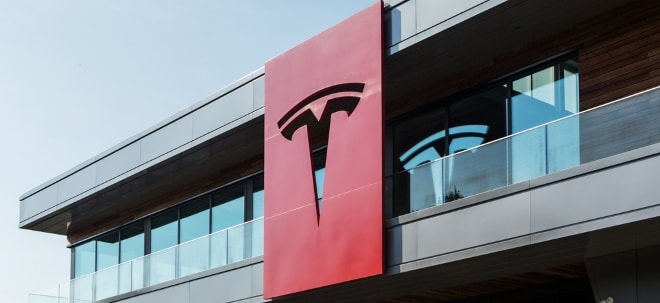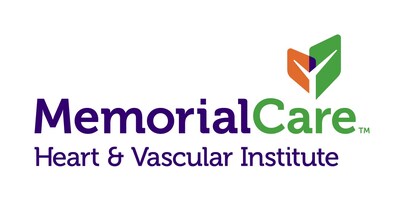Ancient Genes May Explain Why Heart Disease Is So Common Today
FOUNTAIN VALLEY, Calif., Nov. 10, 2025 /PRNewswire/ -- Humans carry genes that predispose us to atherosclerosis, the disease that causes heart attacks, because those same genes may have once helped our ancestors survive and reproduce. That's the evolutionary explanation proposed in a new article published in the American Heart Association journal Circulation by Gregory S. Thomas, M.D., MPH, medical director emeritus, Cardiovascular Program Development, MemorialCare Heart & Vascular Institute at Long Beach Medical Center; Randall C. Thompson, M.D., of Saint Luke's Mid America Heart Institute; and Benjamin C. Trumble, PhD, of Arizona State University.
"Many of the risk factors for atherosclerosis are well known: high cholesterol, blood pressure and glucose, smoking, and diabetes," said Gregory S. Thomas, M.D., MPH, medical director emeritus, Cardiovascular Program Development, MemorialCare Heart & Vascular Institute at Long Beach Medical Center and co-leader of the Horus research team. "But our genes also play an important role. The question is, why would humans carry genes that predispose us to atherosclerosis in the first place?"
Ancient Mummies and Modern Clues
Since 2009, the Horus Mummy Research Team, led by Thomas and Thompson, has used CT scans to search for signs of atherosclerosis in mummified remains worldwide.
"We studied hundreds of mummies from seven different cultures spanning four millennia — ancient Egyptians, ancient Peruvians, and even hunter-gatherers from the Aleutian Islands and Greenland," said Thompson. "Even though the average age at death was only about 40, we found evidence of atherosclerosis in every group — roughly 38% of the mummies. That suggested the roots of atherosclerosis go much deeper than modern lifestyles."
Without modern-day risk factors such as processed foods, tobacco, or sedentary lifestyles, the team began to suspect a genetic origin. In 2007, Albert Zink, PhD, head of the Institute for Mummy Studies in Bolzano, Italy, discovered that Ötzi the Iceman carried several genetic variants predisposing him to atherosclerosis.
"Working with Dr. Zink, we began to ask why a 5,300-year-old man who ate and lived as a hunter-gather would carry these genes," said Thomas.
The Double-Edged Sword of Evolution
Advances in ancient DNA sequencing have provided new clues. In 2023, Zink and colleagues found that Ötzi carried more than 60% of known genes associated with atherosclerosis (104 out 162 atherosclerosis risk genes).
"That's when we began to think these genes must confer some benefit," Thomas explained. "If they were purely harmful, evolution would have eliminated them."
The researchers turned to the evolutionary concept of antagonistic pleiotropy — that one gene can serve two purposes, beneficial early in life but detrimental later. "If a gene boosts fertility or survival through child-rearing years but promotes heart disease decades later, it would still be selected for," noted Thompson.
To test this, the team collaborated with Benjamin Trumble, who studies the indigenous Tsimane of Bolivia through the Tsimane Health and Life History Project.
"We examined a gene called Apo-ε4, which is linked to both heart attack and Alzheimer's disease," said Trumble. "Among 795 Tsimane women, we found that those with one copy of Apo-ε4 had about half a child more on average than those without it — and women with two copies had roughly 1.7 more children. That's a clear fertility advantage."
"These findings suggest that genes predisposing to atherosclerosis were kept in the human gene pool because they helped our ancestors reproduce and raise children successfully," said Thomas.
Thompson added, "Today, we live decades longer and have accumulated new risk factors — diet, inactivity, smoking — that amplify the effects of those same genes. What was once adaptive may now be a liability."
Thomas emphasized the modern lesson: "We can't change our evolutionary history, but we can control today's risk factors. Understanding that our biology evolved for a different world helps us see why managing blood pressure, cholesterol, and lifestyle is more important than ever."
About MemorialCare
MemorialCare is a not-for-profit, integrated healthcare system with over 200 care locations, including leading hospitals like Saddleback Medical Center, Orange Coast Medical Center, Long Beach Medical Center, and Miller Children's & Women's Hospital. It comprises MemorialCare Medical Group, MemorialCare Independent Physicians, MemorialCare Select Health Plan, outpatient and urgent care centers across South Bay and South Orange County, including subscription-free virtual care services. Since 2020, MemorialCare's "Get Care Now" offers HIPAA-compliant, 24/7 virtual care for urgent and primary needs statewide. MemorialCare's clinical networks include the MemorialCare Orthopedic & Spine Institute, MemorialCare Heart & Vascular Institute, MemorialCare Cancer Institute, and MemorialCare Research Program. National accolades include Healthgrades America's Top 250 Hospitals and U.S. News & World Report Best Hospital in OBGYN, with regional recognition in the Los Angeles Metro Area and "high performing" in 46 clinical categories. Visit memorialcare.org.
![]() View original content to download multimedia:https://www.prnewswire.com/news-releases/ancient-genes-may-explain-why-heart-disease-is-so-common-today-302610654.html
View original content to download multimedia:https://www.prnewswire.com/news-releases/ancient-genes-may-explain-why-heart-disease-is-so-common-today-302610654.html
SOURCE Memorial Health Services


